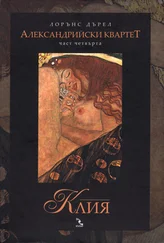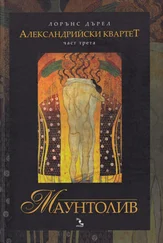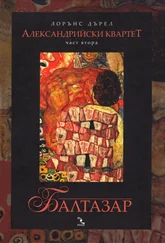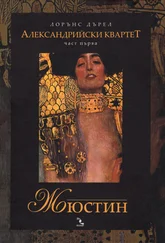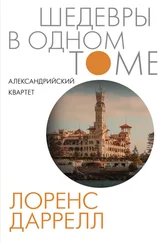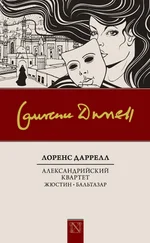Лоренс Даррелл - Prospero's Cell
Здесь есть возможность читать онлайн «Лоренс Даррелл - Prospero's Cell» весь текст электронной книги совершенно бесплатно (целиком полную версию без сокращений). В некоторых случаях можно слушать аудио, скачать через торрент в формате fb2 и присутствует краткое содержание. Жанр: Проза, на английском языке. Описание произведения, (предисловие) а так же отзывы посетителей доступны на портале библиотеки ЛибКат.
- Название:Prospero's Cell
- Автор:
- Жанр:
- Год:неизвестен
- ISBN:нет данных
- Рейтинг книги:4 / 5. Голосов: 2
-
Избранное:Добавить в избранное
- Отзывы:
-
Ваша оценка:
- 80
- 1
- 2
- 3
- 4
- 5
Prospero's Cell: краткое содержание, описание и аннотация
Предлагаем к чтению аннотацию, описание, краткое содержание или предисловие (зависит от того, что написал сам автор книги «Prospero's Cell»). Если вы не нашли необходимую информацию о книге — напишите в комментариях, мы постараемся отыскать её.
Prospero's Cell — читать онлайн бесплатно полную книгу (весь текст) целиком
Ниже представлен текст книги, разбитый по страницам. Система сохранения места последней прочитанной страницы, позволяет с удобством читать онлайн бесплатно книгу «Prospero's Cell», без необходимости каждый раз заново искать на чём Вы остановились. Поставьте закладку, и сможете в любой момент перейти на страницу, на которой закончили чтение.
Интервал:
Закладка:
Lunch prolonged unconscionably becomes tea. Some of us wander away to bathe or sleep out the long hot afternoon. By nightfall the gang of workmen have done their job, and the vine-vats are ready. They sit upon doorsteps or on the grass among the olivetrees, eating their frugal meal of bread and fruit. But wine there is in plenty for them.
At the end of the terrace Zarian lies majestically sleeping in a hammock, while his wife pauses from her reading at intervals to brush a fly off his face. Theodore and Nimiec have disappeared on a journey of exploration with N.
The Count is pottering round the magazine in his pyjamas giving orders in a peremptory voice to his overseers. 'To-morrow we shall start on the robola vat,' he says, and gives orders for it to be moved out of the shadow into the angle of the wall where the sunlight strikes. 'Niko is going to come and do the treading. I can always trust him.' Niko is a slim young man, dressed in a dark suit, who holds his hat modestly in his hand as he hears the Count speak. 'If we put all the women on to the vineyard at once we should have the first vat gathered by sundown to-morrow. Niko can begin at dusk.' His face is radiant and empty of preoccupation. Meanwhile the cellars must be tidied, the magazines dusted and all vanishable goods removed beyond the reach of the pickers' temptation. Ourania is filling the bowls with flowers — autumn crocus and cyclamen from the walls of the vineyards. Donkeys unload mounds of red tomatoes at the outhouse and everywhere the brisk sound of bargaining goes on. Caroline is playing patience upon the balcony, stopping from time to time to pop a grape into her mouth. 'We cannot complain,' says the Count. 'It will be a lovely vintage. We can start Niko off to-morrow. We might bathe to-night. We can use the car. I see that Spiro has stayed on with us. It's bad for trade but he can't bear to miss a party.'
The sound of singing is beaten out thin upon the late afternoon air. I can hear Spiro's bass notes sounding like the eructations of a giant. The Count sits for a while on the garden wall with one slipper off and lights a cigarette. 'And perhaps we shall have an engagement or something to remind us that we are getting old men.' Caroline pretends she does not hear.
Bocklin has brought his flute. Its quaint twirls and flourishes sound unearthly on the empty lawns where the nymph stands. The Count walks slowly down the garden path. 'There is going to be a war, of course. But on days like this one feels that it will go on for ever — I mean this lovely lambent weather: no sense of time, except that the fruit upon our tables changes. By the way, figs are in. Let us hope they will outlive your foreign policy, my dear boy. I see you have been reading Mackenzie. It will be just the same. The Royalists will let us down all the way along. Don't you see that Nimiec and Caroline are falling in love with each other? There is that subtle unspoken polarity of feeling you can we when they are together. They both know it will happen. They both know that the other knows. They both avoid each others' company. And yet the invisible cobweb is drawing tighter. That is happiness — the certainty and inevitability of an attraction like that. It remains for the lock to turn on the event and already it is spoiled. They have had a hundred opportunities to confess themselves — and there he is walking round with the Doctor, holding his test-tubes, while she sits and plays patience and imagines that she does not want him to come and find her there. You know, there is no philosophic compensation for growing beyond the reach of love — that is the one wall one never breaks through. To think that that will never happen again. That that moment, the germinating half-second during which you recognize your completement in someone else, will never happen again. . Any of the peasant girls would supply the physical simulacrum of the event. Ah, but the thing itself is gone. Let us have a glass of wine, shall we? It's thirsty work talking like a Norman Douglas character. Caroline, have a glass of wine with us and let me tell your fortune.'
Just after dawn the cries of the pickers wake us. The grass is still heavy with dew and the sun not yet above the trees. A long line of coloured women are setting forth for the vineyard with their baskets. Mark and Peter are the overseers, and they follow with lordly strides behind them smoking and talking, proud in their blue smocks and straw hats. Spiro follows with the brindled puppy. As we watch the procession the window below us opens and the Count puts his head out to cheer them with some parting pleasantry. The early breakfast daunts everyone but Zarian, who has eaten himself into a state of feverish indigestion and cannot sleep. Spiro sits on the terrace, cap in hand, and prophesies a sunny day in the voice of such heartiness that Zarian becomes all at once quite peevish. The Count, having reassured himself that the pickers have set out to gather the favourite robola vineyard, sleeps on for a couple of hours.
By mid-morning we are all up on the hillock overlooking the vineyard, surrounding our pyjama'd host like staff officers watching a battle. On the brilliant dappled sunlight of the slopes below the women have put on their wimples and are moving with swift grace from shrub to shrub, cutting the long branches with their sickle knives — branches of crimson robola which droop in their baskets with the weight of human limbs.
In the shade of an olive cloths have been spread, and here the women converge, each with her blooming basket load. Two donkeys with panniers stand by apathetically, flicking flies with their tails. Everything goes with a terrific pace for this the first day of picking and the Count himself is looking on.
Presently, when the Count has been reassured as to the picking, we retire to the arbours by the house to drink coffee and pass the long morning in idle talk. Bocklin plays his flute. And gradually, by journeys, the donkeys bring in the fruit which is emptied into the great wooden vat under the careful eyes of Niko himself. The Count cannot sit still until he has supervised everything himself, and seen everything with his own eyes. 'Niko is a wonderful boy,' he says. 'Don't think that any oaf can tread wine. No, he is pure as island water. Don't imagine that the wine-treader doen't transform the wine with his feet — that there isn't a communication I mean between his style and technique and state of soul and the response of the fruit. It's an aesthetic performance. No, Doctor. It is no use you smiling in that ironical scientific manner. We could easily use a machine-treader and you would soon see what sort of wine my robola had become. Niko treads a part of himself into the vat. He is an angel on earth. Ahl! dear me. How over-exotic one sounds when one translates from Greek to English.'
By four o'clock the vat is heaped full and from the sheer black weight of the fruit the must has begun to force the crude spigot. The Count is extremely excited, for it is the moment to begin the treading. Niko has been standing in the trough by the well, washing himself in the icy water. Now he advances to the vat, clad only in a white shirt which is knotted at the thighs. His pale face looks remote and far-away as he hoists himself up. His white feet dangle for a second in the sunlight and vanish. The Count is hoarse with emotion. 'You remember everything now,' he says nervously. 'The old way — as you have done it always.' Niko does not answer. He smiles, as if at some remembered joke, and nods. Gently moving his feet he begins by treading a small hole to stand in and begins to work into it the grapes piled above the rim.
The spigot is now uncorked and the must begins to come out in an opaque crimson spurt. This beautiful colour stains the trough, lacquers the tin measure, and stabs the shadows of the magazine with splashes of red. Keeping the same tireless pace Niko labours deeper and ever deeper into the great vat until by the latest dusk his white face has quite vanished into the depths and only his two crimson grape-splashed hands can be seen holding the edges of the vat. He perches himself up every now and again and rests, hanging his head like a bird. He has become almost intoxicated himself by the fumes of the must, and by the long six-hour routine of his treading — which ends at ten o'clock. His face looks pale and sleepy in the red light of the lanterns. Mark encourages him with gruff pleasantries as he measures the must back into the vat. Since the wine is red the skins and stalks are left in. Now the huge wooden lid, weighted with stones, is floated upon the top, and by to-morrow morning all the leavings will have risen up under it into a scarlet froth of crust, from under which the liquid will be crackling with fermentation. For ten days now the fermentation will go on, sending its acid smell on the gusts of wind from the meadow, into the bedrooms of the great house.
Читать дальшеИнтервал:
Закладка:
Похожие книги на «Prospero's Cell»
Представляем Вашему вниманию похожие книги на «Prospero's Cell» списком для выбора. Мы отобрали схожую по названию и смыслу литературу в надежде предоставить читателям больше вариантов отыскать новые, интересные, ещё непрочитанные произведения.
Обсуждение, отзывы о книге «Prospero's Cell» и просто собственные мнения читателей. Оставьте ваши комментарии, напишите, что Вы думаете о произведении, его смысле или главных героях. Укажите что конкретно понравилось, а что нет, и почему Вы так считаете.


